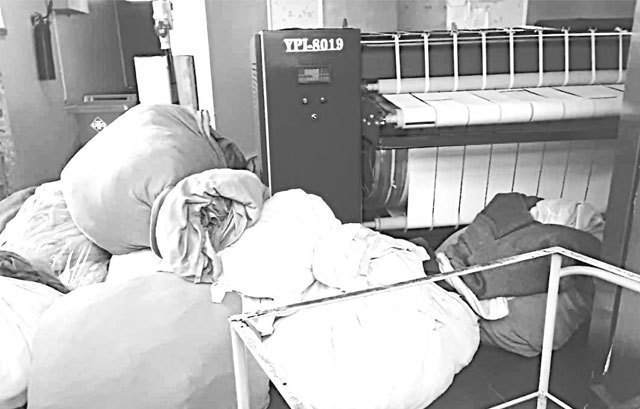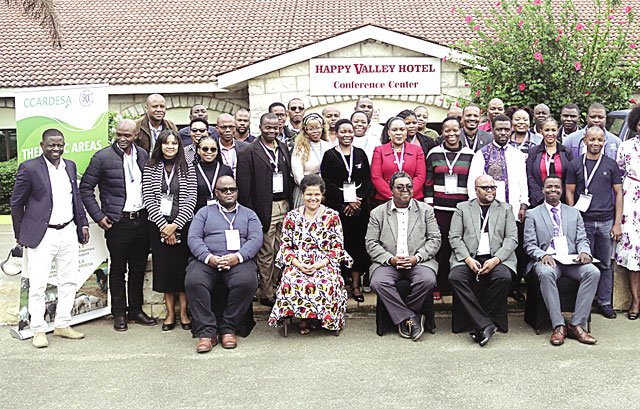By Qondile Ntiwane | 2021-06-16

THE fact that COVID-19 comes with high levels of uncertainties, government can find various means of investing in COVID-19 as means of increasing fiscal space for public health and promoting universal health coverage for Eswatini’s socio-economic development agenda.
The Southern African Research Foundation for Economic Development (SARFED) Regional Coordinator George Choongwa explained that health tax could be government’s initiative to increase the tax collections for the purpose of scaling up essential services via public health.
He said research showed that the COVID-19 pandemic was not only a public health issue, but a socio-economical one since it has the potential to jeopardize both the social well-being of society, as well as the economical one.
innovative
Therefore, through government’s innovative means of collecting tax, as well as prioritising budget allocations would increase public funding towards the novel COVID-19.
“World Health Organisation states that on average, the priority given to health varies significantly among countries in the world. This is mainly from an average of 17.5 per cent of public revenues in high-income countries to about 10 per cent in low income countries of the majority were those from Africa.
“This might then be one of the contributing factors why most governments were faced with challenges of meeting the health demands alongside novel COVID-19 as well as other known social challenges while trying to improve economic growth and development of their respective countries,” he said.
With regards to the implications of this, increasing tax on demerit goods such alcohol and cigarettes as an intervention against the spread of COVID-19 could not sufficiently be the best option as tax on such items should mainly be based on promoting good health living among the consumers as opposed to restrictive measure to control COVID-19.
“Some of the negative implications to such as would include the development of economic vices such as the smuggling of alcohol from neighboring countries, which would also bring about loss of revenue to government and the formation of black market.
“It would also lead to more consumption of possibly non-certified goods which would impose a public health hazard. For example, smokers would end up consumption of non filtered cigarettes which in turn were a health threat among others,” he said.
Choongwa explained the notable benefits of COVID-19, stating that it had the potential to bring about economic stability especially in the micro and meso levels.
He said the historical trends of COVID-19 in Eswatini in the past ten months demonstrated that the pandemic heavily devastated the micro sector more than the macro one. “Informal sector, also characterised by low income earners suffered the most during the first and second wave of the COVID-19.
Therefore, in the event that health is given first priority in fiscal space, and then we can expect these sectors (micro and meso) to recovered and given the opportunity to remain stable with positive growth trends,” he said.
He also mentioned the reduction of unmet health needs during and post COVID-19, the reduction of the out-of-pocket payments by the general public (both traders and other travellers who might need to take travel COVID-19 test which was currently about E700 per person); and also the minimisation of the loss of health workers due to low salaries who might be tempted to seek higher salaries in other countries.
revenue creation
Choongwa further said urged government to engage the private sector for revenue creation, stating that fiscal space for the government could be reached and sustained if government engaged private sector on other issues rather than taxation increasing the health fiscal space through health financing against COVID-19.
“The engagement of private sector in establishing innovative initiatives in sustaining the economy during COVID-19 would result into collective governance which was in general a practice of shared opportunities and challenges,” he said.
He further highlighted the engage the informal sector and broaden the tax base.
“Research states that most developing countries would be faced with the challenge of tax collection due to narrow tax base as a result of the broader informal sector.
Therefore, government would need to develop various incentives which would promote participatory revenue collection with the informal sector,” he said.
share story
Post Your Comments Below

BEAUTY Pageant Eswatini Chairman, Sandra Ismail, officially passed over the Miss Eswatini title t...

While things are falling apart at the Pigg’s Peak Government Hospital, the ministry of heal...

Eswatini along with many other African nations is under scrutiny for failing to meet its commitme...

Status Capital Building Society shareholders are once again being asked to take part in an audaci...
All material © Swazi Observer. Material may not be published or reproduced in any form without prior written permission.
Design by Real Image Internet